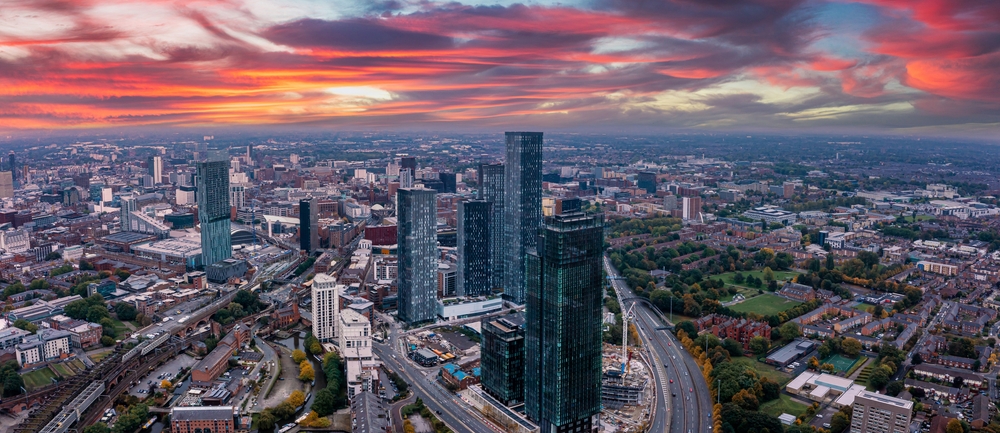The second panel discussion during Haute Residence’s annual Miami Luxury Real Estate & Design Summit, which took place Friday, May 13, at 1 Hotel & Homes in Miami Beach was the "Power Brokers" panel discussion. Moderated by Ina Cordle of The Real Deal South Florida, and the panelists were Alicia Cervera (Cervera Real Estate), Nelson Gonzalez (EWM Realty International), Rex Hamilton (Rex Hamilton Corporation), Dora Puig (Luxe Living Realty), Jay Parker (Douglas Elliman), Phil Spiegelman (International Sales Group), Jorge Uribe (ONE Sotheby’s International Realty), and Monica Venegas (Venegas International Group) speaking on the current state of the Miami real estate market, as well as the importance of international buyers.

Monica Venegas, Jorge Uribe, Phil Spiegleman, Jay Parker, Dora Puig, Rex Hamilton, Nelson Gonzalez, Alicia Cervera
Ina Cordle: How is the South Florida market changing, and are international buyers still as important to you?
Alicia Cervera: I think to say that the Miami market is changing is just to say that it’s the same, because from the first day that I started on this market, it has always been changing and evolving. That’s mostly because it's such a young and evolving and growing city. What has really happened is that our market has continued to expand as our city has become global-oriented.
Nelson Gonzalez: I think the international market will always be important to Miami. We’re a melting pot of the world.
Rex Hamilton: I’ve had the pleasure of watching the change in the city, and I think that Miami has always been an international city. It makes it a very attractive place for an international market. I think we will always see the international market play a big success for Miami. It’s just a different country next week than it was last week.

Jorge Uribe, Monica Venegas, Phil Spiegleman, Jay Parker, Dora Puig, Nelson Gonzalez, Alicia Cervera, Rex Hamilton
Cordle: Which countries are important to you?
Dora Puig: I do think within the U.S., the market is expanding. I think once the dollar stops being so strong, you’re going to see all these markets raise back and level off. I’m seeing, still, a lot of capital from Venezuela. Brazilians have started to turn into sellers instead of buyers. I still have 100 percent faith in the international market and it's coming back strong.
Jay Parker: I think Miami has become a great metropolitan city. The draw has expanded from what we focused on historically, which was Latin America. I expect Latin Americans will still flock to South Florida, especially when the currency begins to stabilize a little bit. We’ll see more of Latin America buyers coming for all different kinds of reason: quality of life, capital, and political security. I also agree with the rest of the panel that other parts of the world are also now looking at South Florida as a safe haven. I’m hearing more and more from my colleagues that Europeans are starting to feel threatened and concerned about the long-term viability of their realty investments in their own countries and are liquidating with intention of focusing on the South Florida market.
Phil Spiegelman: The wonderful thing about Miami is that we have an appeal. Our region has appeal in all places over the world. Maybe, 20-years ago we focused on one country or another, today it’s an entire continent, in terms of South America. Beyond, we had the feeling that the paradigm of what people could buy in this cycle changed from high leverage to substantial deposits – that we wouldn't see the domestic market back for some time. That is changing, you’re hearing the same thing from everyone else on the panel, and we’re all saying the same thing. We all have our eyes on Asia. We all talk about China. It's a long-term proposition, but if you look, take time, and put in effort, China will become a future lasting part of South Florida. With direct flights being available later this year or in the near future, the Chinese will find it easier to get here. They'll appreciate not just the weather and amenities, but the great value that we represent in terms of real estate.
Monica Venegas: It was the city for the international buyer––whether pleasure, business, or life. Now, we are very fortunate to be in a cosmopolitan city. Miami is now known worldwide. It’s not just Latin American anymore. European and Middle Eastern buyers have been starting to come to Miami in the last couple of years. I’m very focused on China and the Asian market. I’ve been going there and immersing in culture for the last couple of years… For the Asian market, especially, the Chinese, it's still an undervalue city.

Monica Venegas, Jorge Uribe, Phil Spiegleman, Jay Parker, Dora Puig, Rex Hamilton, Nelson Gonzalez, and Alicia Cervera
Cordle: Let’s switch to properties. What are you seeing selling, and are they homes, condos, pre-construction, re-sales?
Cervera: Miami Beach is never going to be overvalued in my mind, because it's such a spectacular space. However, the city is grossly undervalued. When you start to look at the projects that are starting to be developed – and I have the privilege of working with some of the great developers in addition to our regular real estate platform––and you see all these spectacular views, and it's all under $1,000 per square foot. It's a very interesting value proposition in one of the most dynamic cities.

Cordle: What’s been your most interesting deal and what made it interesting?
Puig: Several years ago, the sale of the icon penthouse, where we had three bids going on at one time. I was told by prominent brokers, who I won't mention, that I couldn’t make the price of this building pass $2,000 a foot. I was involved with three bids at the same time, and it's a scary situation, because you could have a record sale or have nothing if you don’t handle it with gloves, so we had to go one by one, outbidding each other. The property was listed at $19 million, and when I took the listing I thought it was insane. I thought it was overpriced. It ended up selling at $21 million and closing in cash. The whole dynamic of the outbidding each other and the super egos involved and the super brokers involved on each side was like a jigsaw puzzle. Probably my biggest learning curve.

"I have been able to close the deals that I have because I have done my work, been perseverant and patient, and really worked the details." -Monica Venegas
Ina Cordle: Let’s talk about your success. You’re all obviously very successful. What was the secret to your success? What are you doing that’s different to get you where you are today?
Parker: I would like to say that I think the key to success, all of ours, is to be professional and responsive, looking out for best interest of our client, and not simply being commission chasers. I’ve worked with many of these agents present today, and I can tell you that they’re always looking for the best way to complete a project, the best way to service a client, and to be productive. They’re not just chasing a commission. I think it's the people that dig in deep, study the market, and look for the best that become the most successful.
Venegas: I have been able to close the deals that I have because I have done my work, been perseverant and patient and really worked the details.
Puig: As the saying goes, technology, technology, technology. When I first moved back to Miami from Los Angeles, I was working on two beautiful projects. When we launched the project, we had a $3 to 5 million media plan––$10,000 was dedicated to the Internet. It was seen that only 20-year-olds were the ones able to get online and look at something, and my client was not 20-year-olds. Today, I'm running Fisher Island, and we spend over $1 million on what we call our magic table––I call it my giant iPad. The technology is amazing. Most of our budget to sell is in technology… You will get to the buyer through technology, and I’m a 100 percent believer in that that’s where the whole future is going––online presence, social media, and spectacular websites. You have to have an online presence and focus on technology.
Photos by David Heischrek/DHPA






